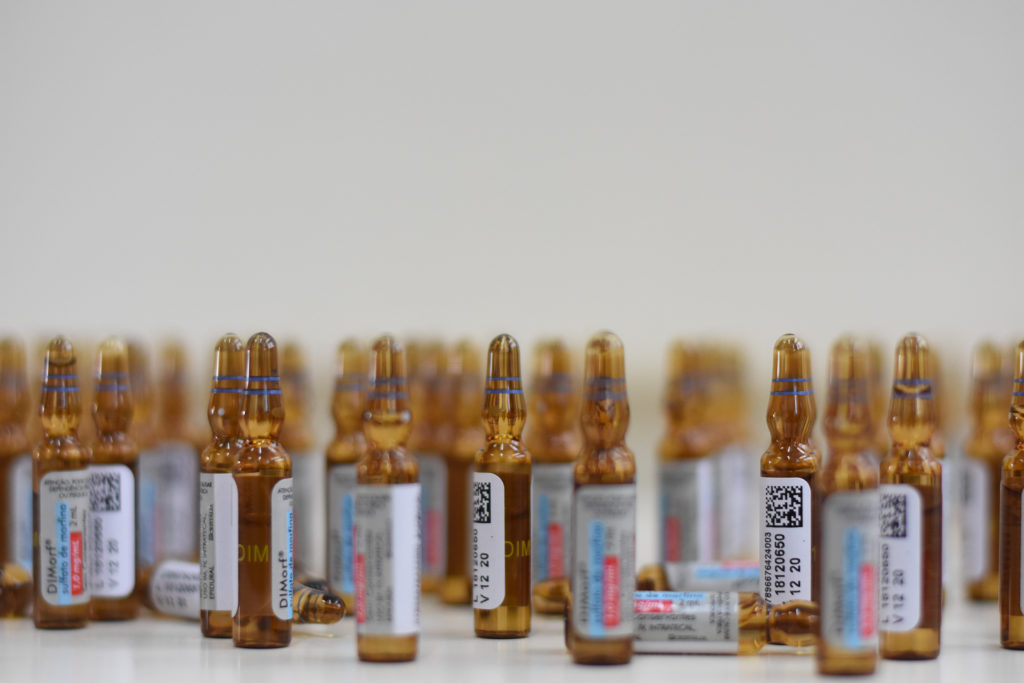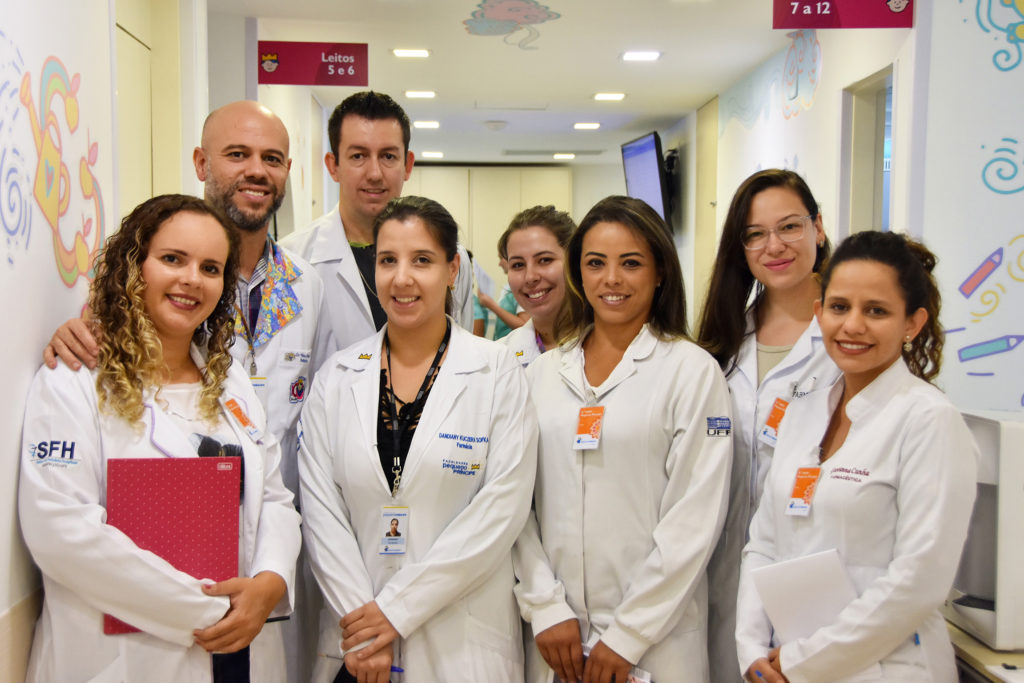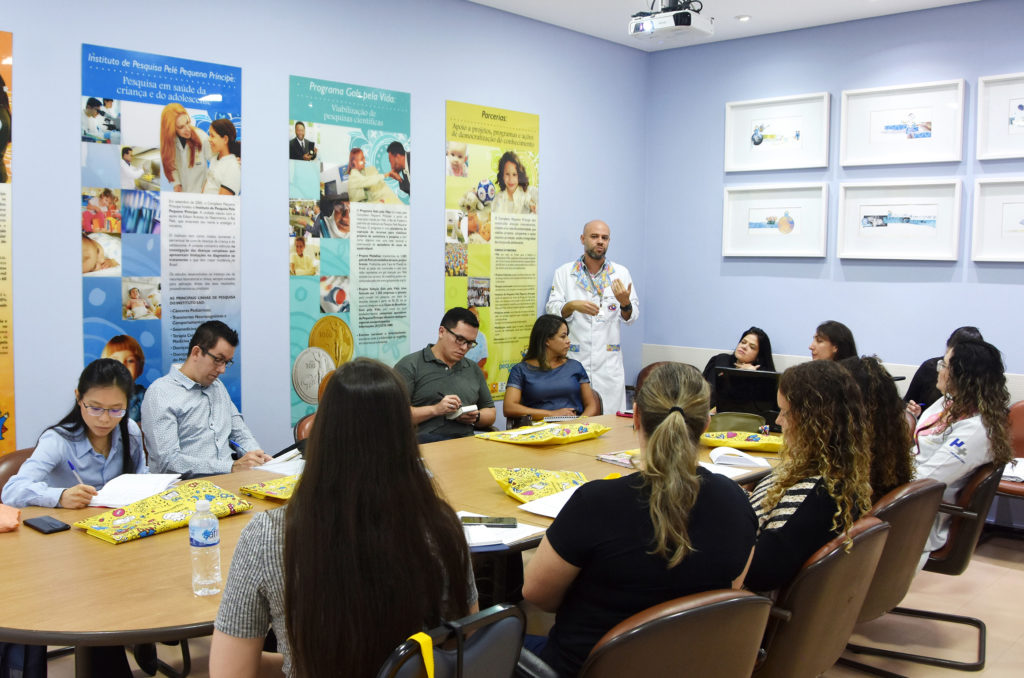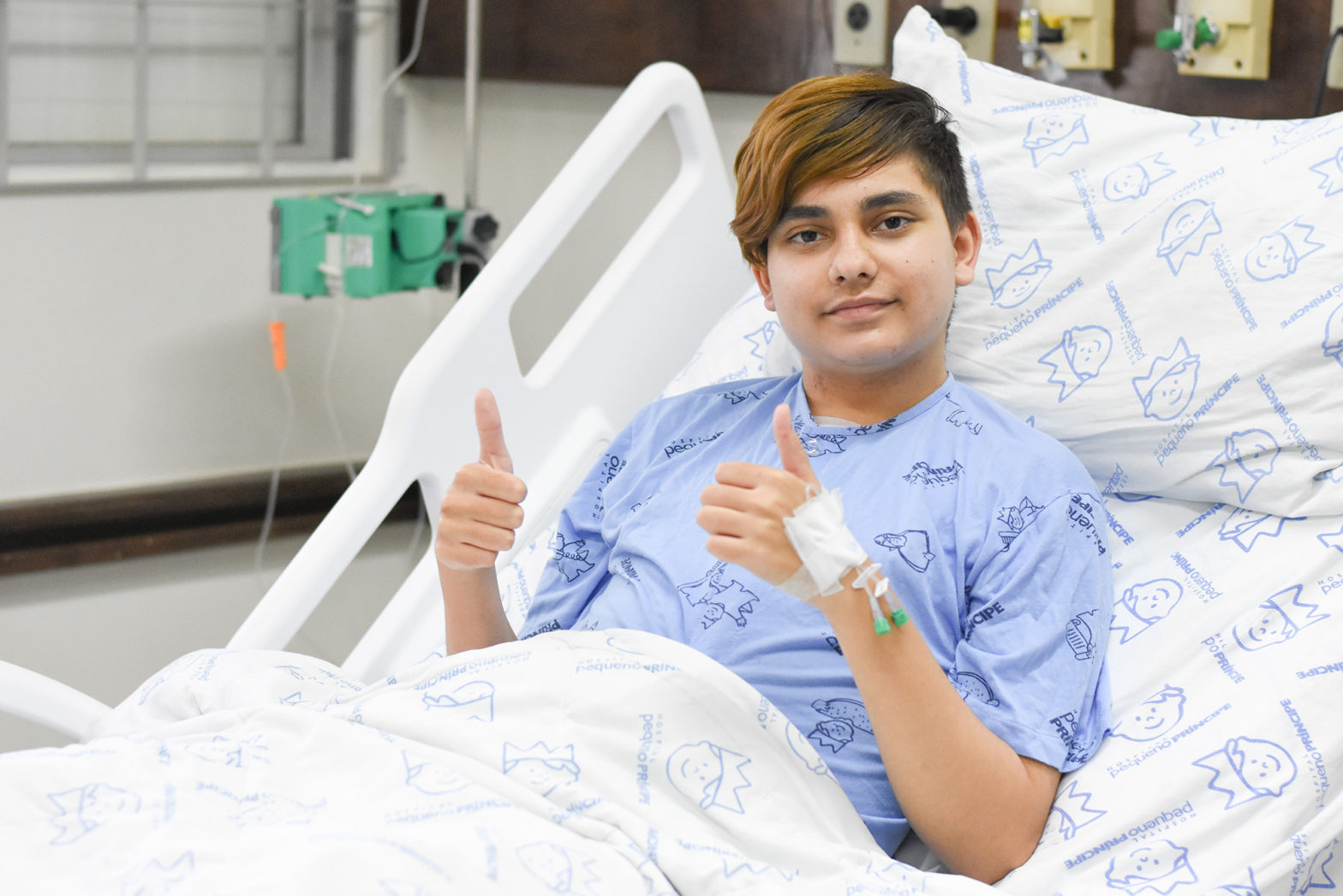During the pandemic, Pequeno Príncipe qualifies Brazilian hospitals around the rational use of antibiotics
One of the institutions benefitted from the project is the Hospital das Clínicas of the University of São Paulo (USP), the largest hospital in Latin America

A project created by Pequeno Príncipe Hospital is taking its antimicrobial control model to four other Brazilian health institutions (see box). A study carried out in 2014 by the English macroeconomist Jim O’Neill, commissioned by the Prime Minister of England, estimates that, if nothing is done to curb antibiotic resistance, in the year 2050, approximately 10 million people will die from issues related to resistance to antimicrobials. In addition to the loss of life, the economy will also suffer from a reduction in world GDP of between 2% and 3.5% in relation to what would be observed that same year.
Resistance to antimicrobials occurs due to several factors, such as overuse of medications, mistaken prescriptions, inappropriate doses, use of antibiotics outside the health area, few control actions, among others. “We run the risk of losing the effect of a great ally in promoting health, which are antibiotics,” warns the pediatric physician coordinating the project, Fábio Motta. The expectation of students on this subject is that this scenario may worsen with the current coronavirus pandemic (COVID-19).
The Antimicrobial Stewardship, the antimicrobial management model developed by Pequeno Príncipe, concentrates several actions of this management in the figure of the clinical pharmacist. Currently, in most hospitals, this control is under the doctor’s responsibility. However, in most health scenarios, the doctor does not get enough time to dedicate himself to this process, not being able to cope with all the existing demand behind the management of antimicrobials.

Considering all the new demands generated in hospitals for most infectologists due to the pandemic, responding to the call for control and management of antimicrobials is even more challenging. The central idea of this project is to develop the expertise of the clinical pharmacist to assist the physician in the control of these medicaments, transforming the pharmaceutical professional into his main ally in fighting resistance to these antibiotics. The clinical pharmacist, in this model of action, is responsible for the entire articulation with the other members of the care team, such as an infectologist, microbiologist and nursing team.
With the presence of a clinical pharmacist specialized in approaching infectious diseases, the entire antimicrobial control process gains strength and the infectologist, responsible for the program, gains a great ally and manager who will be responsible for the collection, organization and analysis of the managed data, thus changing the perspective of antimicrobial control in the institutions involved in the project.
“Through this initiative, Pequeno Príncipe offers the health community its experience of more than ten years in antimicrobial control. Our model is mature enough to be shared with partners who face this great challenge of fighting the advance of resistance to antimicrobials,” explains Motta.
The Hospital’s executive director, Ety Cristina Forte Carneiro, points out that one of the institution’s principles is the dissemination of knowledge. “This project is an example of how the integration between assistance, teaching and research generates knowledge capable of directly impacting society, contributing to more sustainable and responsible management models in the future of health,” she says.

Results
One of the main results of this management model in Pequeno Príncipe was the reduction of days of antibiotic use. In 2019, for example, there was a decrease of 690 days of use of the antibiotic vancomycin in the Neonatal ICU. The drug meropenem was reduced by 452 days of use in the same Intensive Care Unit.
During the year, clinical pharmacists made about 4,000 interventions in the appointments and, of these, 63% were related to pharmacotherapy, such as dosage adequacy and adjustment, laboratory tests and unnecessary use of the medication.
Shared knowledge
The hospitals participating in the project are:
– Hospital das Clínicas, University of São Paulo (São Paulo/SP)
– Hospital Universitário de Sergipe (Aracaju/SE)
– Hospital Ministro Costa Cavalcanti (Foz do Iguaçu/PR)
– Hospital do Trabalhador (Curitiba/PR)
The cooperation of Pequeno Príncipe Hospital with the four hospitals that are part of the project began in February 2020 and will continue until February 2021. The initiative has a financial subsidy from Pfizer, the pharmaceutical company, through a line that supports independent projects of hospital quality improvement.
During the duration of the project, Pequeno Príncipe will qualify two clinical pharmacists from each one of the hospitals and monitor the actions in a weekly basis. The training began in March 2020, when pharmacists had the opportunity to participate in a three-day immersion at the largest pediatric hospital in Brazil.
Among the activities that are already being carried out, are the establishment of several protocols, monitoring of the implementation of actions through videoconference, scientific meetings to discuss clinical cases, alignment of indicators and construction of the local epidemiology of problems related to antibiotics.
The expectation of Pequeno Príncipe is to generate several pharmacoeconomic indicators and contribute effectively to reducing the use of antimicrobials in participating hospitals.
More
COVID-19 Report
Until 10 a.m. on July 3, the Pequeno Príncipe Hospital treated 232 suspected cases of the disease, 27 of which were confirmed
Pequeno Príncipe performs heart transplantation during the coronavirus pandemic
14-year-old patient, Matheus Felipe, waited only eight days for a new heart




